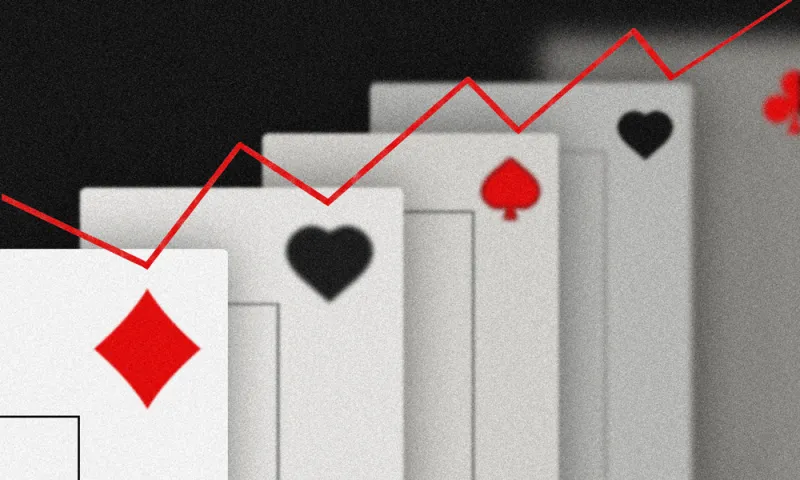It's no secret that hedge fund managers love betting — on the markets and at the poker table.
Options trading firm Susquehanna International Group gives its new hires copies of The Theory of Poker and Hold ’Em Poker, Point72 founder Steve Cohen called the game the “biggest determinant” in his learning to take risks, and Greenlight Capital founder David Einhorn once placed third in the World Series of Poker tournament. Hedge funds have even hired talented players: Former poker pro Vanessa Selbst was recently recruited by Bridgewater Associates for her prowess.
Now, though, it’s official: better poker players make better hedge fund managers, according to new research published on the Social Science Research Network.
According to the paper, entitled “Hedge Fund Hold’em,” hedge fund managers who do well in poker tournaments have significantly better fund performance. Investors know it, too, as funds with poker-winning managers tend to have higher inflows, the research showed.
Researchers Yan Lu of the University of Central Florida and Sandra Mortal and Sugata Ray from the University of Alabama hand-collected data on hedge fund managers’ poker winnings from The Hendon Mob website, a poker database, then merged that with flow and performance data from commercial hedge fund databases, the paper showed.
Their findings revealed, importantly, that the non-poker and poker funds, as the researchers dubbed them, had “identical” characteristics apart from their poker skills. They had very similar management and incentive fees, and their risk profiles were also identical, the paper showed.
Despite this, the poker funds — or funds with managers who have won at least one poker tournament — had average monthly raw returns of 0.67 percent, as compared with 0.58 percent for non-poker funds, the research showed. The researchers called these returns “statistically significant.” Poker funds have better longevity, too, existing for 3.72 years on average, compared with 3.02 years for non-poker funds.
Investors have responded to this success by funneling more capital into the poker hedge funds, the research showed: poker funds had 1.6 percent to 1.9 percent higher monthly net inflows following wins. The numbers were even better for those managers that receive media coverage for their playing. They saw a 3.3 percent to 3.8 percent increase in monthly net inflows, the paper showed.
Funds with managers that won larger cash prizes than the median tournament win saw 2 percent to 2.1 percent higher monthly net inflows, while those managers that won before the 2012 passage of the JOBS Act — which lifted the restriction on hedge fund advertising — saw a 1.6 percent to 2.1 increase in monthly net inflows.
[II Deep Dive: A Hedge Fund Manager Who Drives a Ferrari Will Probably Underperform]
Despite all this, poker winnings do not determine whether hedge funds perform better following the win, the research showed. Returns were not significantly different for hedge fund firms after poker wins, but alpha decreased significantly after those wins, the research showed. Winners underperformed their peers by between 40 and 60 basis points following the wins, the research showed.
That's because the influx of capital following a manager's poker win can actually strain a fund's capacities, thereby reducing alpha, the authors found.
So, while poker wins can make hedge fund firms more appealing, they actually can be detrimental to the firm.
“Put another way, in this case, investors in hedge funds do not know when to hold’em,” according to the paper.







